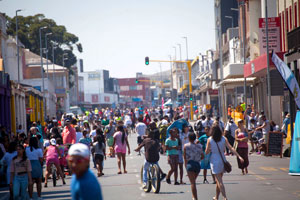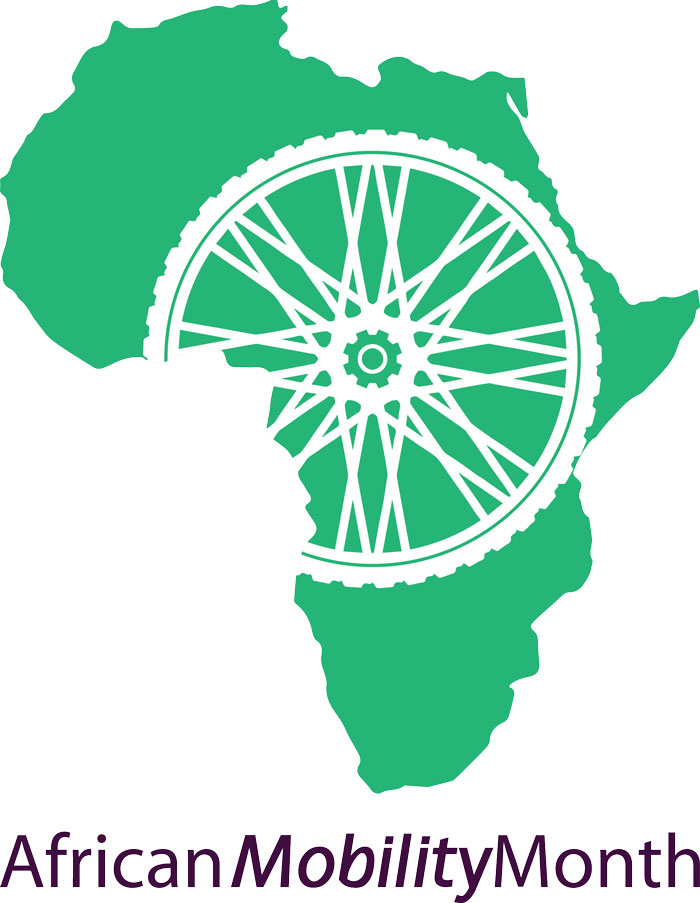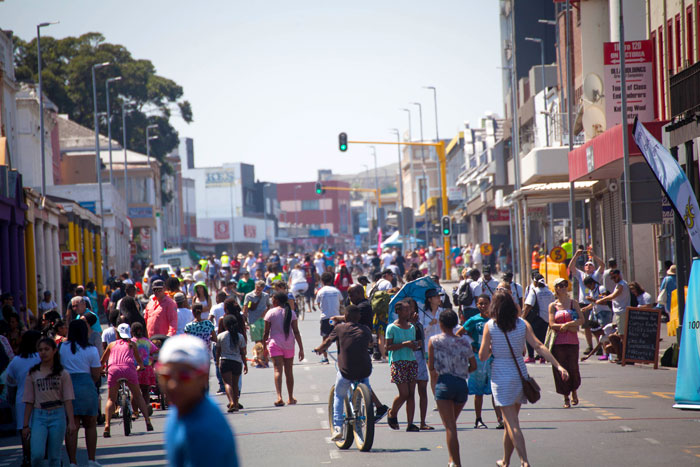2 September 2019
African Mobility Month: Walking the talk on sustainable mobility



ICLEI is calling on citizens of African cities to celebrate walking, cycling and all forms of active mobility during African Mobility Month from 20 September to 20 October 2019. Showing public demand for safe infrastructure aims to attract national government support.

Africa’s middle class is rapidly expanding. As incomes increase, rising car ownership is threatening health, safety, economies and the environment. African cities have some of the highest percentages of commutes by foot or bicycle in the world (in some cases over a third), but this is rapidly changing with a shift toward cars.
A lack of infrastructure for safe walking and cycling means that citizens often have to walk in the road between cars and heavy vehicles to get from A to B, risking life and limb until they can afford the protection of a vehicle. To save lives and reduce greenhouse gases from the mobility sector, ICLEI is helping cities to diminish the threats faced by pedestrians and cyclists by promoting dedicated infrastructure that allows them to move safely and affordably without contributing to climate change.
African Mobility Month – 20 September to 20 October 2019 – is inviting all citizens to take action for active mobility on the continent.
Most decision makers have their own cars and drivers, and tend not to consider the needs of those who can’t afford the same mobility services. It is thus unsurprising that the majority of national transport budgets are channelled towards highways and flyovers to make car ownership more convenient. However, in many large cities, limited land area can’t accommodate the roads and parking spaces required for each citizen to have a car, and the climate, economic, traffic and health implications of universal car ownership would be disastrous.
Forward-thinking cities around the world are increasingly realising the multitude of health, environmental and economic benefits of walking and cycling. Some of the world’s leading cities are diverting larger and larger portions of their transport budgets into infrastructure like paved sidewalks, night lighting and cycle lanes to allow for safe walking, cycling and other forms of non-motorised transport (NMT). Seoul has converted highways into walkways, Amsterdam has committed to replacing over 10,000 street parking bays with gardens and bicycle storage, and Medellin boasts over 100km of dedicated cycle lanes to protect cyclists from vehicle traffic.
“With their high numbers of pedestrians and cyclists, African cities can build on their existing active mobility culture to lead the world in the NMT transition. To do this, government support is crucial,” said Blake Robinson, who is leading ICLEI Africa’s eco-mobility work. “However, based on feedback from African cities gathered during workshops for the Transformative Urban Mobility Initiative (TUMI), one of the main obstacles preventing African cities from investing in NMT infrastructure is a lack of national government policy and funding. Governments are unlikely to prioritise this if walking and cycling are seen as inferior modes of transport that will soon be replaced by cars, and unless they receive a clear indication from their citizens that they desire alternatives. African Mobility Month is mobilising citizens to show their interest in active mobility so that governments can better support them.”

Open Streets has organised street closures in and around South African cities since 2012,
encouraging citizens to enjoy their public spaces and imagine a future with fewer cars (Source: Mik Motala)
Organised by ICLEI in collaboration with UN-Habitat, UN Environment, ITDP, GIZ, Open Streets and Critical Mass, African Mobility Month will demonstrate the magnitude of citizen support for active mobility in African cities by showcasing existing activities that support walking and cycling across the continent.
In 2019, the first campaign will primarily take place on Twitter. Everyone is invited to share photos and event news using the #AfricanMobilityMonth hashtag and demonstrate their support for sustainable urban mobility. We call on our network to get involved. Visit the African Mobility Month website to see how you can play a role in promoting more sustainable mobility in African cities, and follow the events on Twitter from 20 September to 20 October 2019.

